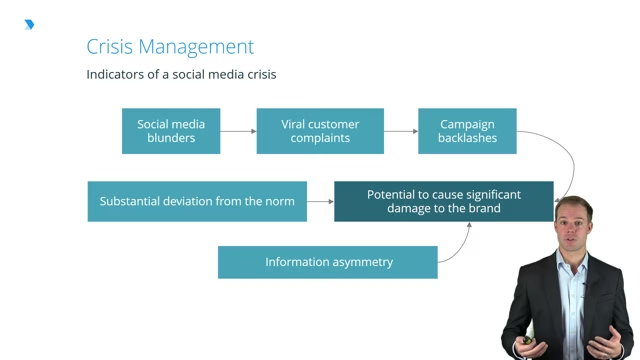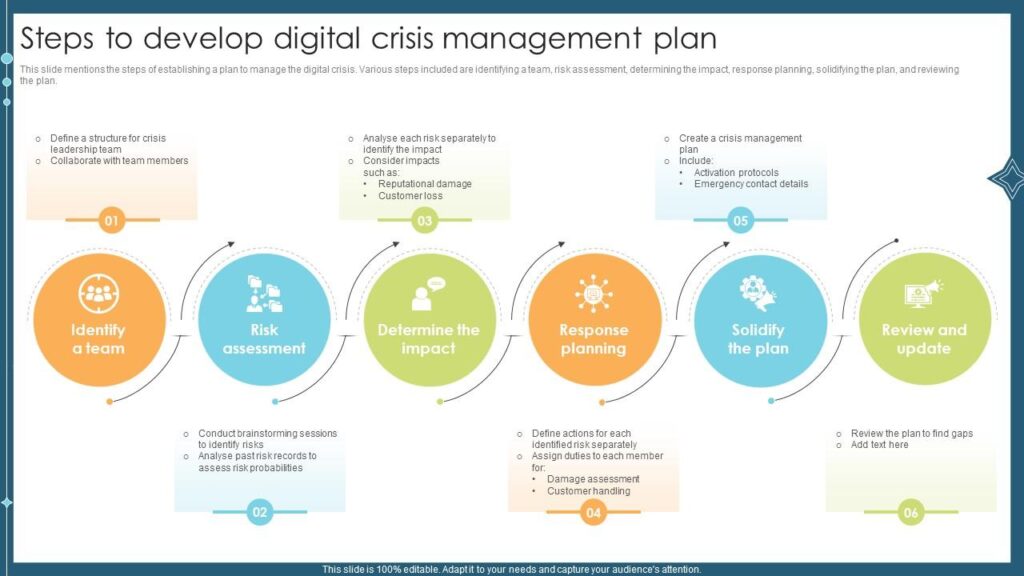In the dynamic and fast-paced world of digital marketing, brands are susceptible to crises that can tarnish their reputation and negatively impact their business. These crises can arise from various sources, including social media backlash, negative reviews, data breaches, or public relations mishaps. Effective crisis management is crucial for mitigating damage and restoring brand integrity. A digital marketing agency in Dehradun can play a pivotal role in handling crisis management for brands. This article explores how such an agency can effectively manage crises and safeguard a brand’s reputation.
In the dynamic and fast-paced world of digital marketing, brands are susceptible to crises that can tarnish their reputation and negatively impact their business. These crises can arise from various sources, including social media backlash, negative reviews, data breaches, or public relations mishaps. Effective crisis management is crucial for mitigating damage and restoring brand integrity. A digital marketing agency in Dehradun can play a pivotal role in handling crisis management for brands. This article explores how such an agency can effectively manage crises and safeguard a brand’s reputation.

Understanding Crisis Management in Digital Marketing
Crisis management in digital marketing involves identifying, addressing, and mitigating issues that can harm a brand’s online presence and reputation. The goal is to respond swiftly and strategically to minimize the negative impact and restore public confidence. Key components of effective crisis management include:
- Preparedness and Planning
- Rapid Response and Communication
- Monitoring and Analysis
- Reputation Management
- Post-Crisis Evaluation and Learning
Preparedness and Planning
A proactive approach to crisis management begins with preparedness and planning. A digital marketing agency in Dehradun will work with the brand to develop a comprehensive crisis management plan, which includes:
- Risk Assessment: Identifying potential risks and vulnerabilities that could lead to a crisis. This involves analyzing past incidents, industry trends, and brand-specific factors.
- Crisis Scenarios: Creating hypothetical crisis scenarios to understand potential challenges and responses. This helps in preparing for various types of crises, from social media blunders to cybersecurity breaches.
- Crisis Team: Establishing a crisis management team within the agency, comprising members with expertise in public relations, social media, content creation, and customer service.
- Communication Protocols: Defining clear communication protocols for internal and external stakeholders. This includes outlining who will communicate with the media, customers, and the public during a crisis.
- Crisis Response Plan: Developing a detailed crisis response plan that outlines step-by-step actions to be taken during different types of crises. This plan should include guidelines for social media responses, press releases, and customer communication.
Rapid Response and Communication
In the digital age, speed is of the essence when handling a crisis. A digital marketing agency in Dehradun will ensure a rapid and coordinated response to minimize damage. Key steps include:
- Immediate Acknowledgment: Quickly acknowledging the crisis and informing the public that the brand is aware of the issue. This shows transparency and a commitment to addressing the problem.
- Centralized Messaging: Ensuring that all communication channels deliver consistent and accurate messages. This prevents misinformation and confusion among the audience.
- Designated Spokesperson: Appointing a designated spokesperson to handle media inquiries and public statements. This person should be well-prepared and trained to convey the brand’s messages effectively.
- Social Media Monitoring: Closely monitoring social media platforms for mentions, comments, and conversations related to the crisis. Responding promptly to concerns and correcting misinformation is crucial.
- Customer Support: Providing dedicated customer support to address individual concerns and inquiries. This helps in maintaining trust and showing that the brand cares about its customers.
Monitoring and Analysis
Continuous monitoring and analysis are essential for understanding the crisis’s impact and making informed decisions. A digital marketing agency in Dehradun employs various tools and techniques to monitor the situation:
- Social Listening: Utilizing social listening tools to track mentions, sentiment, and trends related to the crisis. This provides real-time insights into public perception and allows for timely adjustments to the response strategy.
- Media Monitoring: Monitoring news outlets, blogs, and online publications to track media coverage of the crisis. This helps in understanding how the crisis is being portrayed and identifying potential areas for damage control.
- Analytics and Reporting: Analyzing website traffic, social media engagement, and other relevant metrics to assess the crisis’s impact on the brand’s online presence. Detailed reports help in evaluating the effectiveness of the response strategy.
Reputation Management
Restoring and managing a brand’s reputation after a crisis is a critical aspect of crisis management. A digital marketing agency in Dehradun employs various strategies to rebuild trust and credibility:
- Positive Content Creation: Developing and promoting positive content that highlights the brand’s strengths, achievements, and values. This includes blog posts, articles, videos, and social media updates.
- Customer Engagement: Engaging with customers through social media, email campaigns, and community outreach programs. Encouraging satisfied customers to share positive reviews and testimonials can help counteract negative sentiment.
- Transparency and Accountability: Demonstrating transparency by sharing updates on the actions taken to resolve the crisis. Taking responsibility and showing accountability can enhance the brand’s credibility.
- Partnerships and Collaborations: Partnering with influencers, industry experts, and other reputable brands to rebuild trust and expand the brand’s reach. Collaborative efforts can reinforce the brand’s positive image.
Post-Crisis Evaluation and Learning

Once the crisis has been managed and the situation stabilized, a digital marketing agency in Dehradun conducts a thorough evaluation to learn from the experience. Key steps include:
- Debriefing Sessions: Conducting debriefing sessions with the crisis management team to review the response strategy, identify strengths and weaknesses, and discuss lessons learned.
- Performance Analysis: Analyzing the effectiveness of the crisis response plan and the impact on the brand’s online presence, reputation, and customer sentiment. This includes reviewing metrics, feedback, and media coverage.
- Strategy Refinement: Refining the crisis management plan based on insights gained from the evaluation. This ensures that the brand is better prepared for future crises and can respond more effectively.
- Training and Development: Providing ongoing training and development for the crisis management team and other relevant staff members. This includes scenario-based training, communication skills, and social media management.
Conclusion
In conclusion, effective crisis management is essential for protecting and restoring a brand’s reputation in the digital age. A digital marketing agency in Dehradun plays a crucial role in handling crises by leveraging their expertise, tools, and strategic approach. From preparedness and rapid response to monitoring, reputation management, and post-crisis evaluation, the agency ensures that the brand can navigate crises with resilience and emerge stronger.
By partnering with a reputable digital marketing agency, brands in Dehradun can benefit from a proactive and comprehensive crisis management strategy that minimizes damage, maintains customer trust, and preserves their online reputation. In today’s interconnected world, where a single crisis can have far-reaching consequences, having a reliable partner to manage crises effectively is not just beneficial—it’s essential for long-term success.
